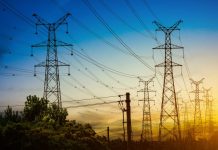ISLAMABAD: Electric vehicles (EVs) help in minimising dependence on fossil fuels and reducing environmental degradation, WealthPK reported.
According to the Oil Companies Advisory Council (OCAC), during the first seven months (July-Jan) of FY2022, around 76% of oil was purchased by the transport sector. The oil import bill reached $12.94 billion during the first 8 months of Fy2022, which was only $6.45 during the same period of FY2021.
Pakistan’s total import bill reached $52.51 billion during the first eight months (July-Feb) of FY2022, while exports stood at around $20.6 billion. The trade deficit during the period under review was around $32 billion. To minimize import bill, Pakistan needs to move towards efficient solutions.
The combustion of fossil fuels contributes significantly to greenhouse gas emissions. About 46% of GHGs (greenhouse gases) escape into the atmosphere due to unrestrained use of fossil fuels, followed by agriculture at 43%.
Despite the fact that electric vehicles in Pakistan are more expensive than conventional ones, the cost of its maintenance and fuel is significantly lower. Additionally, these vehicles offer significant environmental benefits.
Pakistan is still in the early stages of adoption of EVs. According to Waleed Amir, Director of Tesla Industries, Pakistan, Tesla has installed around 10 ultra-fast electric vehicle chargers in different cities of Pakistan. Tesla Industries is Pakistan’s first company manufacturing/assembling EV chargers and vehicles.
The charging price is around 60 to 70 rupees per unit (as per grid station price). A normal vehicle with a 60-kilowatt battery takes 40 minutes to charge with 40 units that can travel 200 to 400 kilometres.
There are currently more than 2,000 EVs in Pakistan and all of them have been imported from different countries.
Pakistan introduced its Electric Vehicle Policy 2020-25 in 2020 and the share of EVs is forecast to be 30% and 90% in 2030 and 2040, respectively.
According to the policy, 1% import duties and 0% taxes (sales tax, income tax) will apply to the import of equipment and machinery for EVs. In addition, EVs owners will pay only a 50% toll tax.
According to former Energy Minister Hammad Azhar, China’s leading EVs producer BYD is coming to Pakistan to manufacture/assemble EVs. Sapphire Group is also joining the BYD. There is a good news for the EVs industry in Pakistan with the arrival of these groups.
Despite these encouraging developments, this sector faces a host of challenges that hinder sales. One of the factors is the high price due to the absence of a manufacturing/assembling plant in Pakistan. The unavailability of maintenance points and spare parts is another factor that discourages buyers to abandon conventional vehicles and switch over to electric ones.
There is also a lack of awareness among the people in the absence of a robust media campaign at the state level to promote EVs. One of the major issues for EVs adoption is the lake of charging infrastructure. The government should assist the investors to install charging stations.
The government should set up a special zone and subsidize e-vehicles, as price is the most important element in the purchase of a vehicle.
The government should offer interest-free loans to investors to encourage investment in this sector for the establishment of manufacturing facilities. Moreover, policymakers may be able to enlist the assistance from China, which is expected to be the world leader in the production of EVs within a few years.
INP






